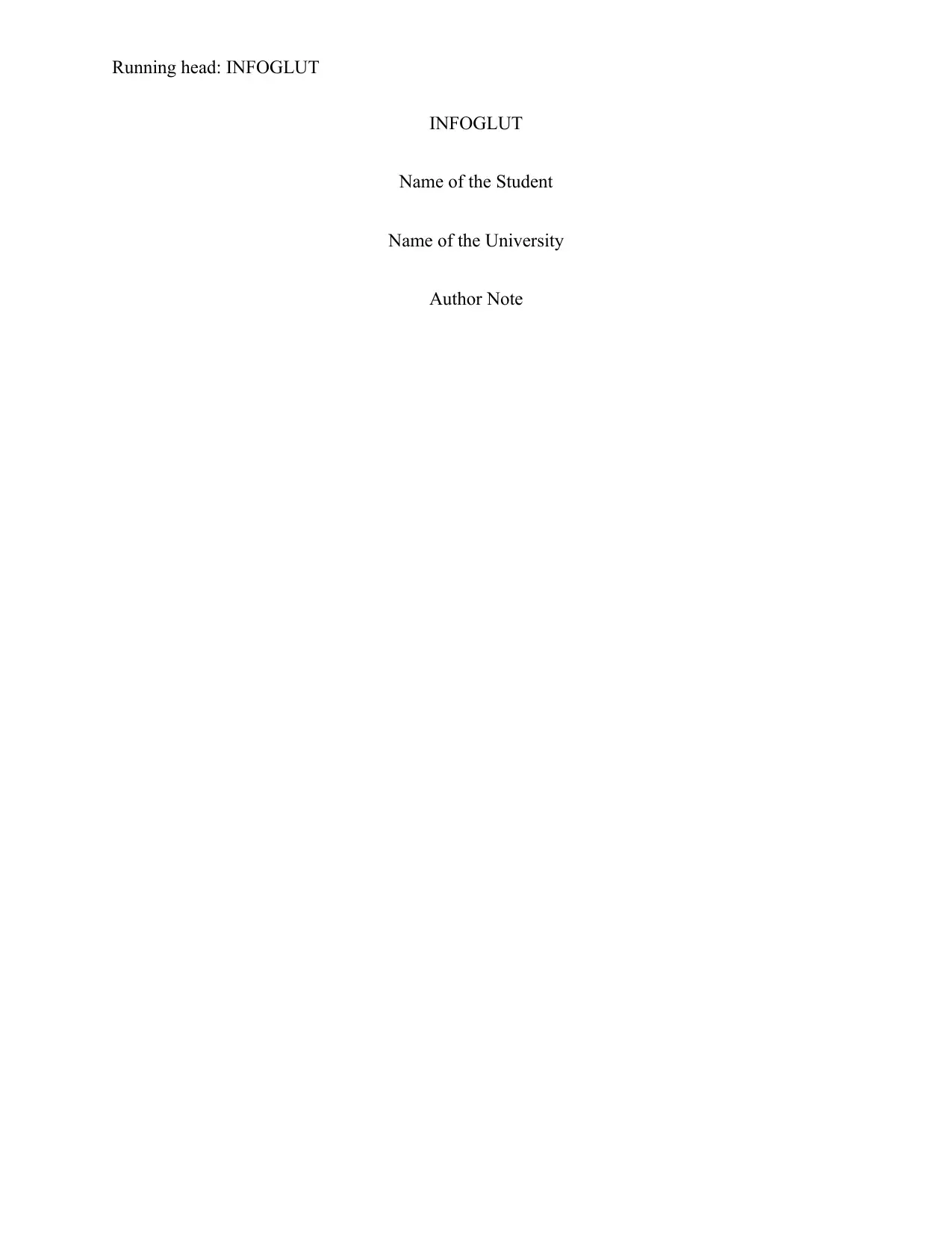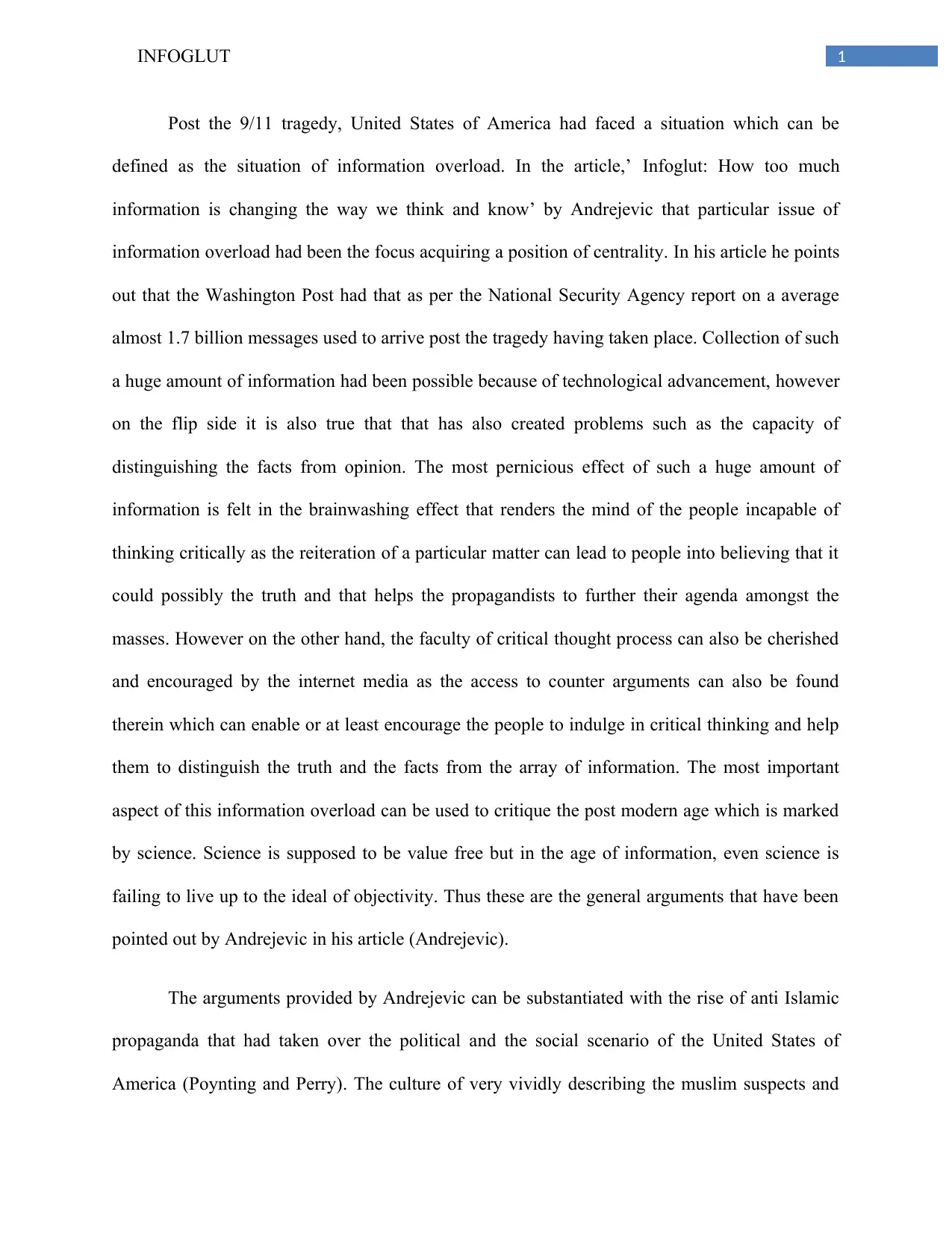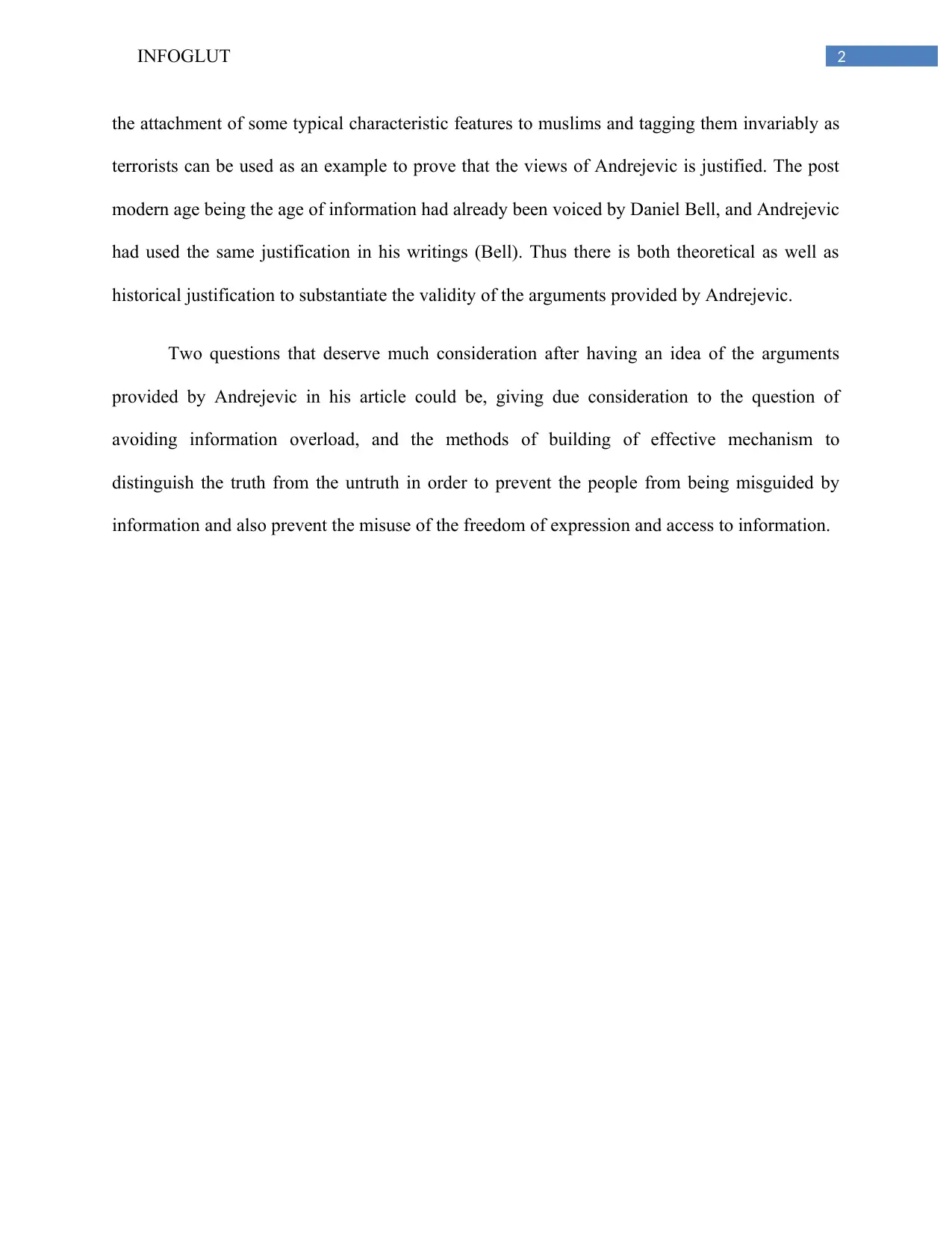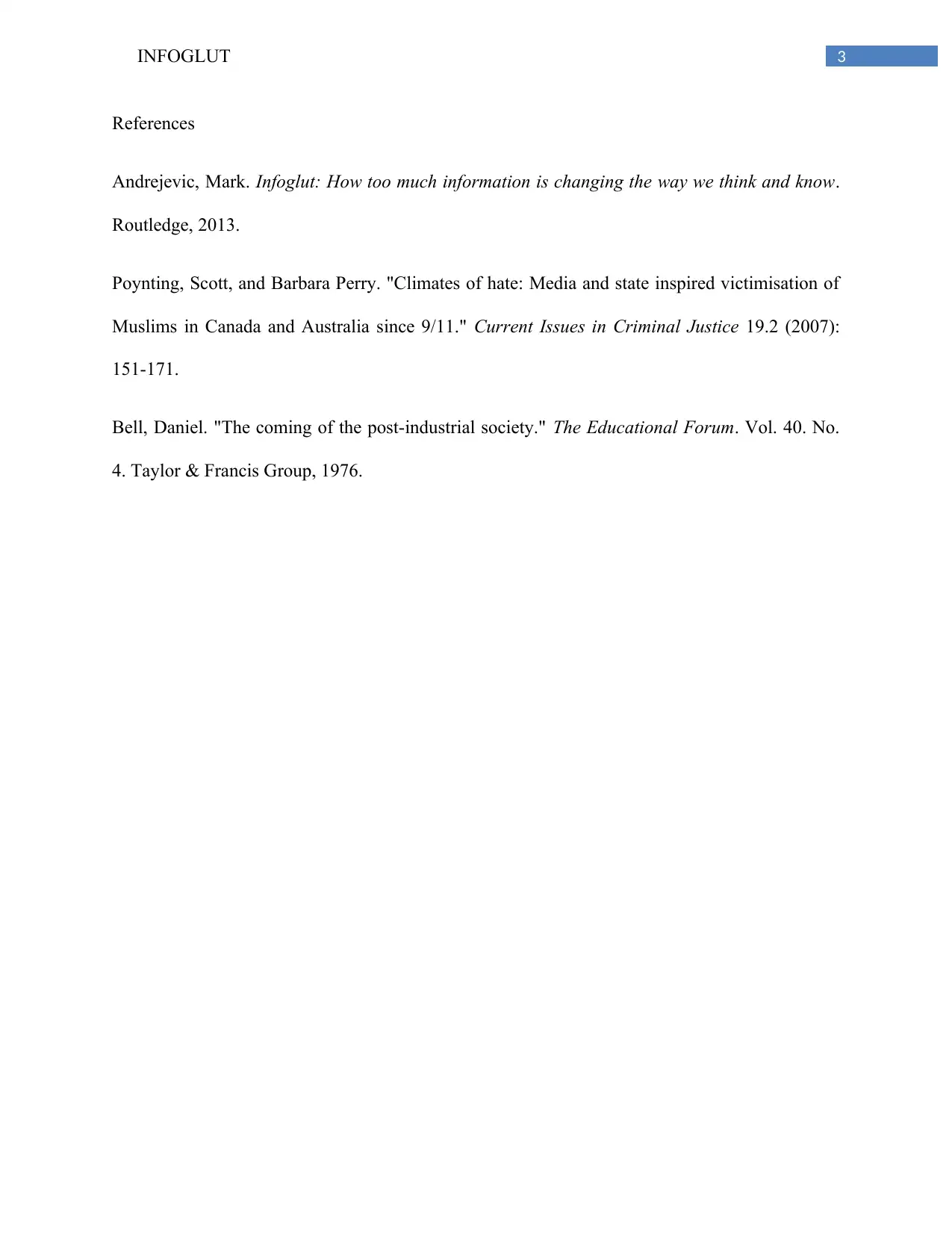INFOGLUT: Analyzing Information Overload in the Modern Age
VerifiedAdded on 2022/10/11
|4
|650
|46
Report
AI Summary
This report analyzes Mark Andrejevic's article, "Infoglut: How too much information is changing the way we think and know," which focuses on the issue of information overload in the post-9/11 era. The report examines how technological advancements have led to an overwhelming amount of data, making it difficult to distinguish facts from opinions and potentially hindering critical thinking. It discusses the brainwashing effect of repeated information and how the internet can both foster and impede critical thought. The analysis highlights the impact of information overload on the postmodern age and the challenges it poses to objectivity, even in science. Furthermore, the report substantiates Andrejevic's arguments with the rise of anti-Islamic propaganda and considers methods for avoiding information overload and developing mechanisms to discern truth from falsehood. The assignment includes a summary of the article, an assessment of its value, and discussion questions for further exploration.
1 out of 4






![[object Object]](/_next/static/media/star-bottom.7253800d.svg)